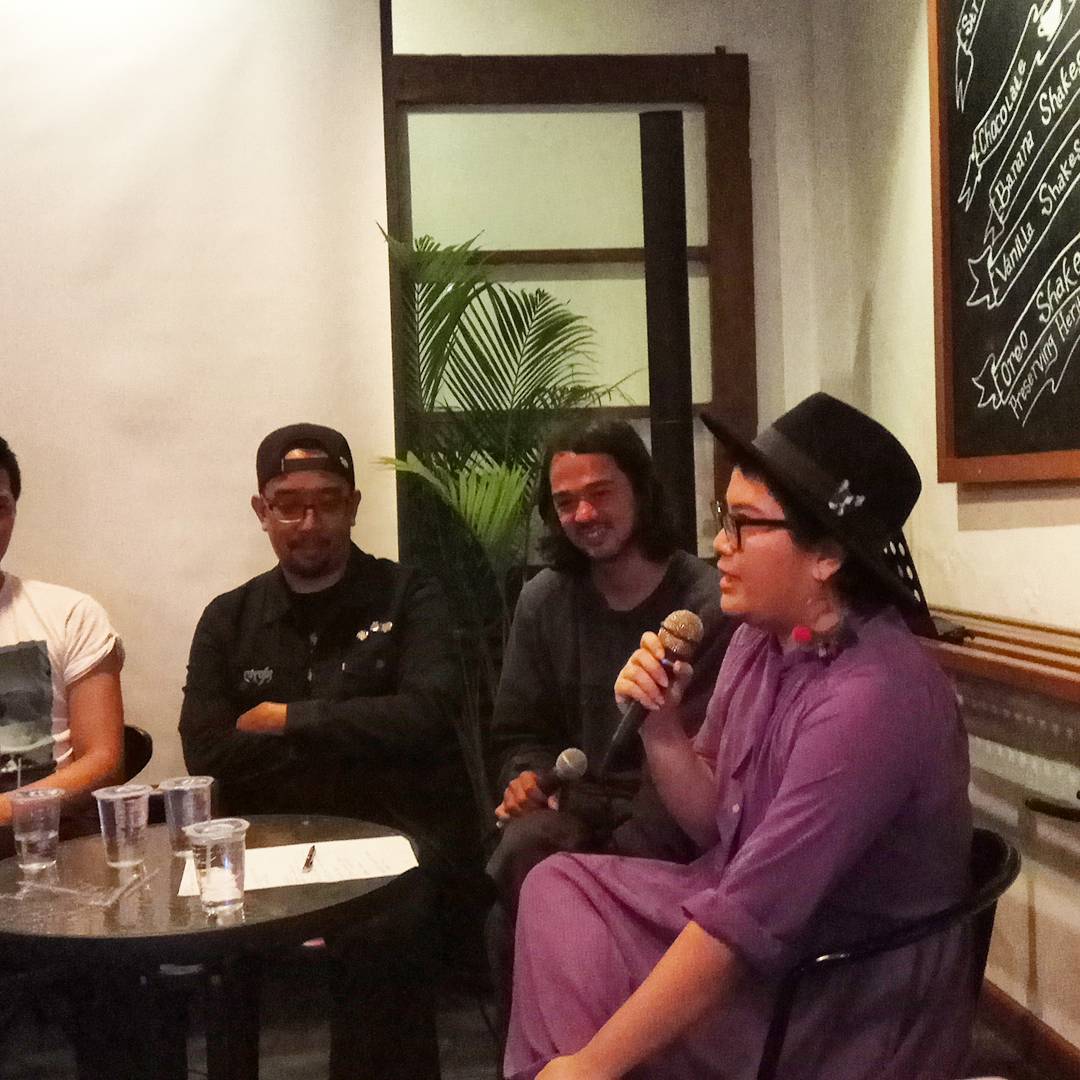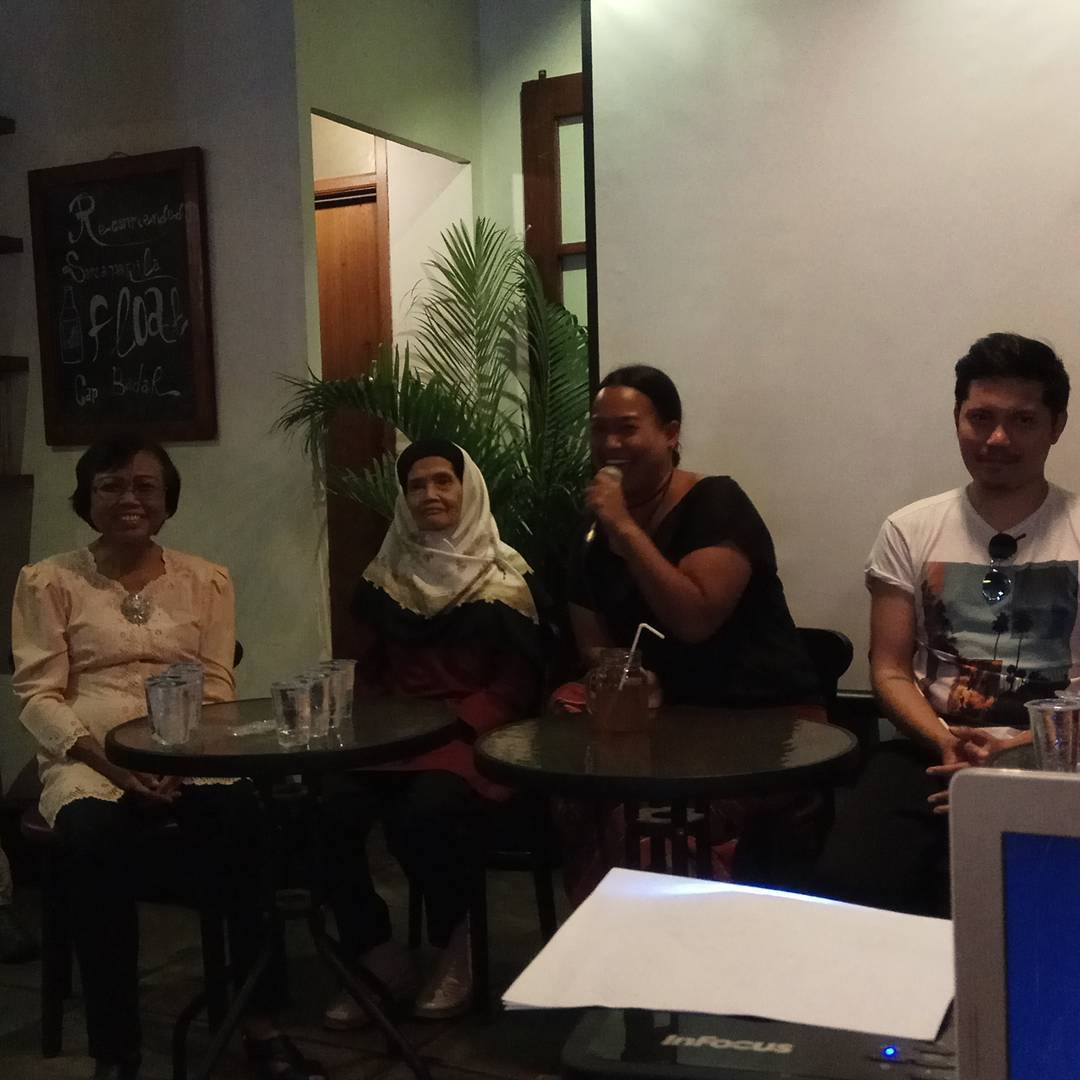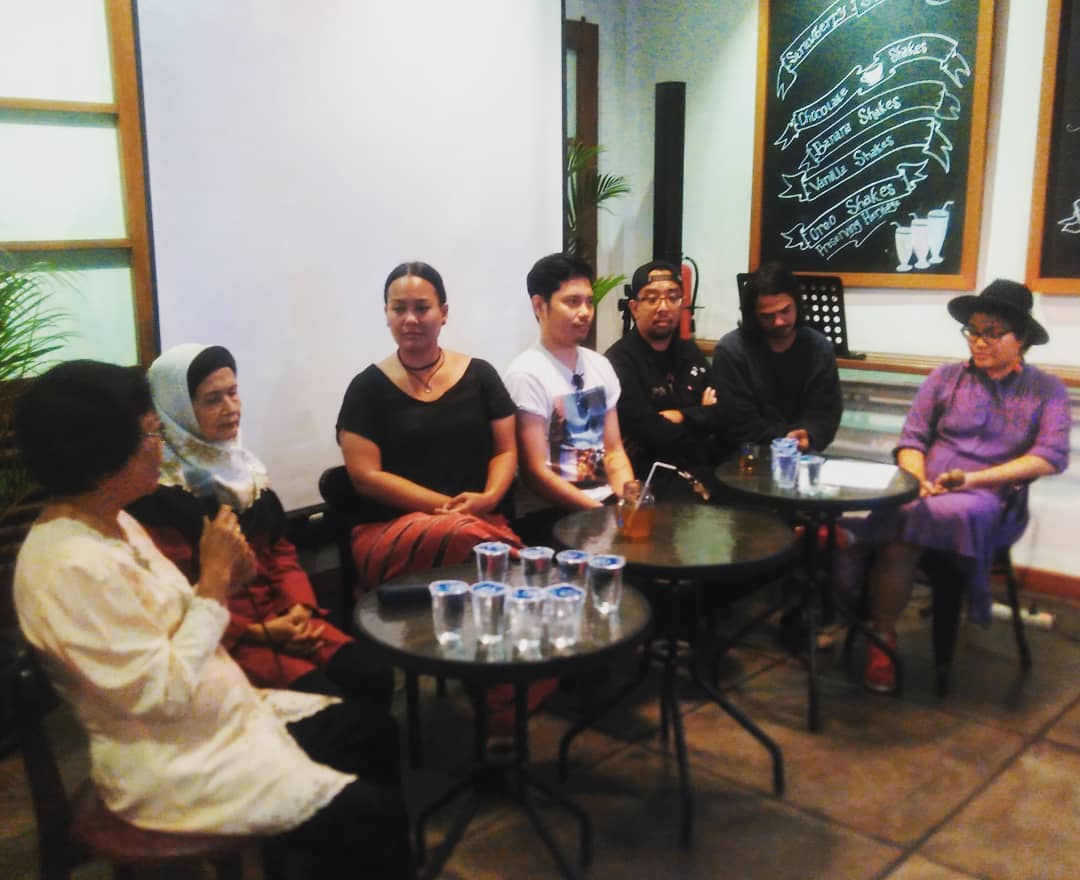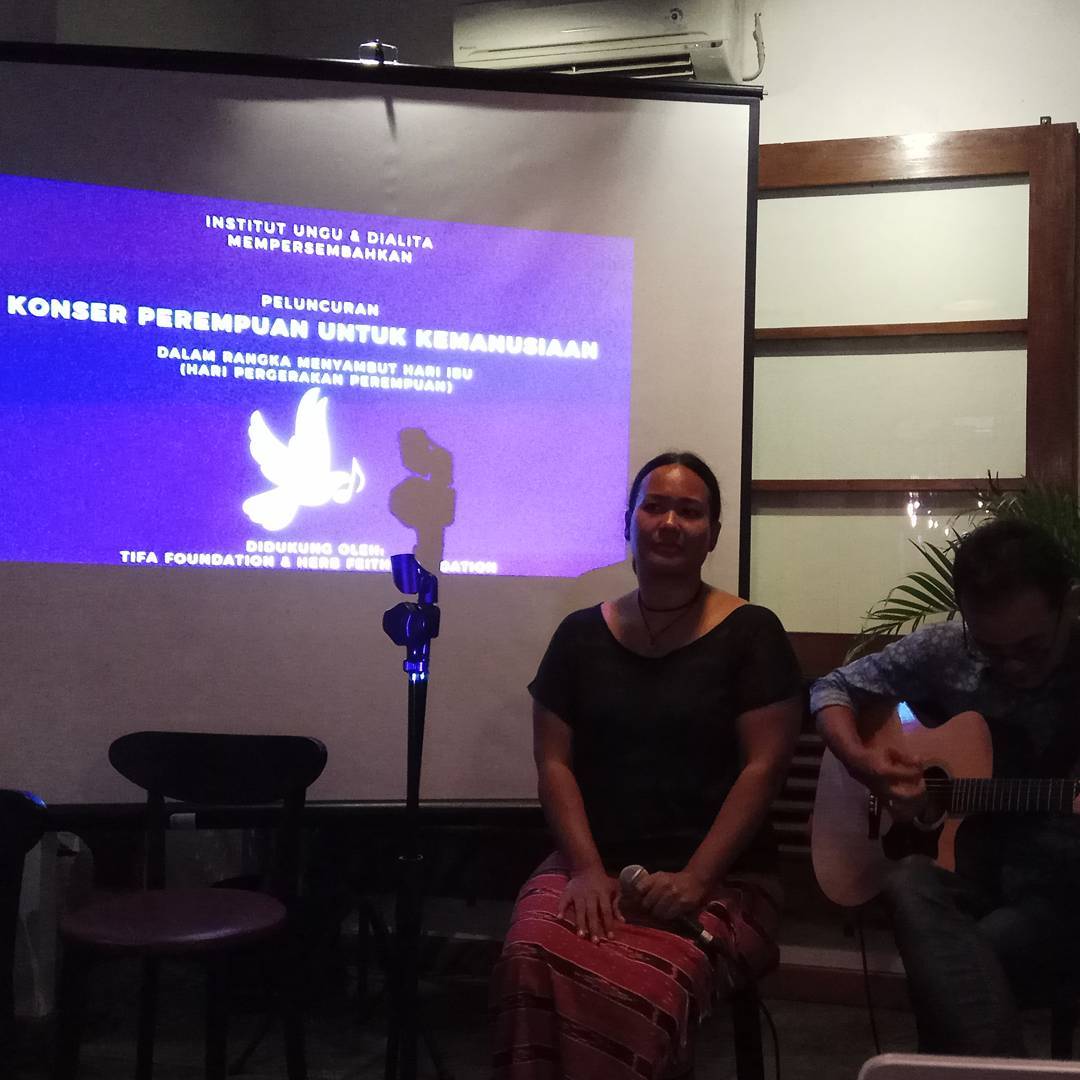Singing has been a storied, simple, efficient way to pass the time since the days of yore, whether in a solitary or communal context. But for the members of the Dialita choir, it is not just a means of killing boredom: it's also an act of survival.
The pan-Indonesian communist purge in the mid 1960s not only killed innocents, it wrecked the psyche of millions of survivors - who have since been forced to keep mum about their brush with violence. The prejudice and stigma surrounding the matter are deeply entrenched in many Indonesians since the New Order era, making the forbidden C-word a source of long-standing, frequent, superfluous hysteria: inspiring shutdowns and even mob attacks.
Now joining forces with the current generation's persistence to openly discuss and resolve the 1965/1966 genocide is Dialita, a choir of women whose parents, relatives and friends were captured, tortured and exiled during the dark period of the nation's history. The name itself is an abbreviated Indonesian phrase translating to "above 50 years old" - a double entendre referring to the ages of its members, and the years that have passed since the state-sponsored atrocity.
The choir is set to organize their first-ever concert (slated for December 13) in an attempt to get the stories - and songs - heard by more people. The women hope to further destroy the taboos surrounding 1965 and push the general public (and eventually the government) to reconcile with its foregone error. A press conference to promote the event was recently organized in Jakarta, featuring two members of the choir as well a host of Indonesia's indie rock icons, including singer-songwriter Kartika Jahja, who served as the event's moderator.
At the event, choir members Utati Koesalah and Theresa Ellysabeth recounted stories of how they once had to sing their songs in secrecy, and to come up with certain gestures, symbols and initials for them in public settings. But their resilience prevailed: now they sing these songs to a larger public. Despite once again rising anti-communist sentiment, they refuse to back down. "Singing these songs is our way of coping with the pain, the shame and the trauma that the 1965 ordeal inflicted on us. It is a form of self-healing," said Utati.
Kartika and the panel of guests, which included Arian 13 from heavy metal outfit Seringai as well as fellow musicians Bonita and Jason Ranti, shared their thoughts and experiences pertaining to this sordid chapter of Indonesian history. "I think the whole rising anti-communist sentiment is just way blown out of proportion," lamented Jason. "It's not productive to engage in that. But I still find it amusing how a lot of people are still buying into the propaganda."
"I know that by being involved with Dialita means being political, but I try to make it as casual as possible," said Bonita, who's performed with the choir a number of times. "If anyone gives me a hard time because of that, I'll try to understand their reason and tell them to learn more about our history, because the access is everywhere these days.
"These women's resilience is nothing short of inspiring. No matter what your political persuasion is, their stories deserve to be told and heard," she concluded.
For more on Dialita and their upcoming concert, visit their Facebook and Instagram pages.
Photos c/o Dialita. Additional photography by Fajar Zakhri.












